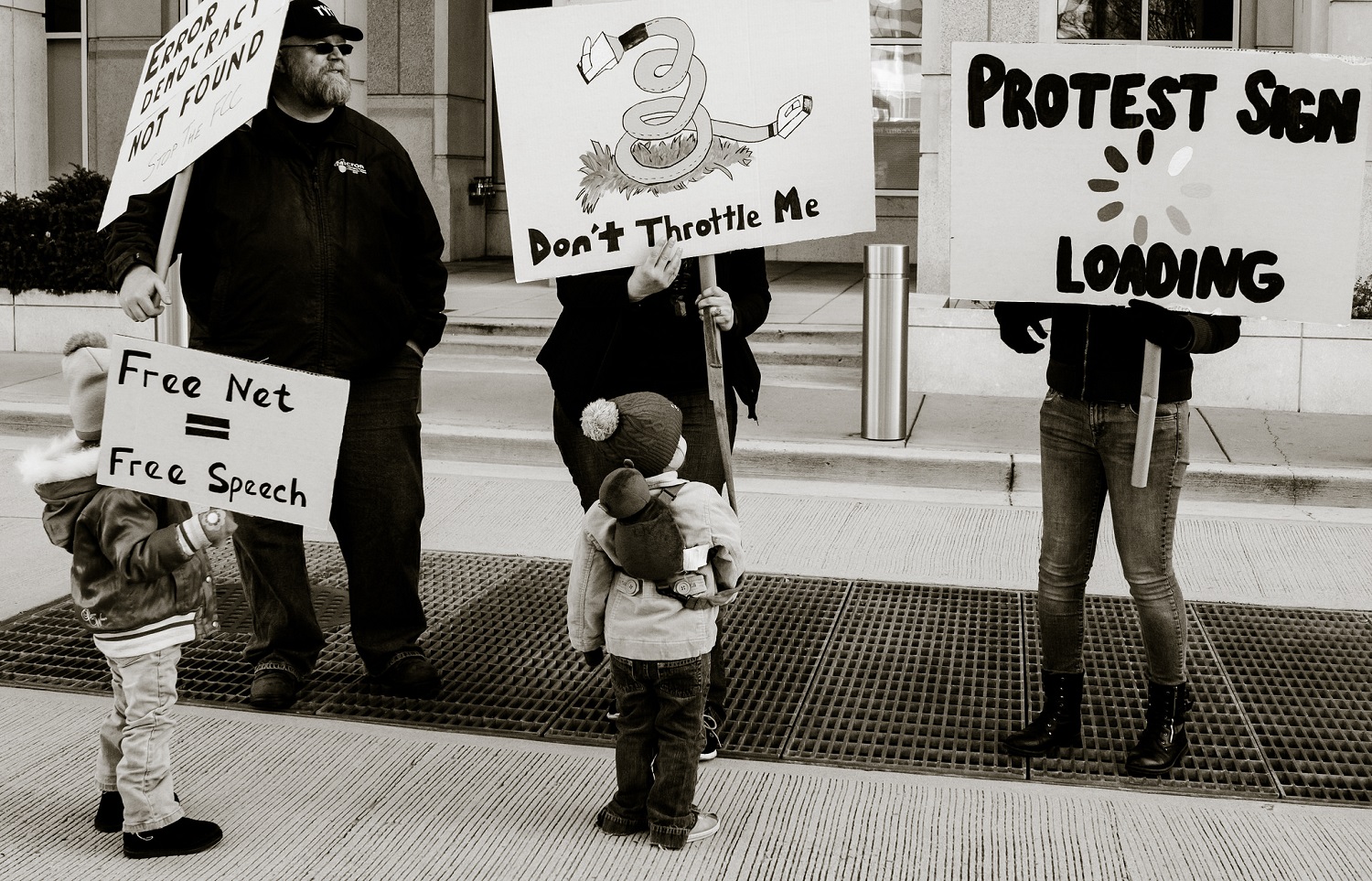Communications technologies have always been prone to overstatement. The creation of semaphore during the French Revolution — those flag signals you once got Boy Scout badges for — was going to unleash humanity’s full potential for freedom! Right.
The first King’s Christmas Speech on radio in 1932 (by George V, the one before Colin Firth) was hailed as: “King George Greets Whole Empire by Radio. Distant Lands Thrill to His ‘God Bless You.'” It was, in other words, a new instrument of imperial domination. Canada wasn’t immune. In 1935 CBC radio hit the “apogee” of broadcasting by “forging a choral chain from Halifax to Vancouver” to sing successive verses of Good King Wenceslas.
The sheer thrill of the tech often masked its darker elements. But the age of mass media, such as radio, TV and newspapers, which we’re still exiting, also allowed unprecedented manipulation, and not just by Nazis. The few who ran or owned those media enjoyed one-way messaging to the masses, who had no real way to resist or reply. Those on top were the gatekeepers of information and attitudes, but few even noticed there were gates being opened and closed. It fell to marginalized critics like Noam Chomsky to make the point.
In this sinister light, the internet arrived as an incredible bounty. Why? It gave the “masses” a way to answer back, instantly, beyond puny letters to the editor. It was many-to-many communication, not just few-to-many. It would, thereby, crack the power of those infernal media gatekeepers! It would be free ranging, wide open to all opinions, not just “established” ones. It was, in the normal way, overpraised as, for instance, the greatest invention since fire!
But the internet also has dark sides: fake news (in a crasser way than Chomsky’s “propaganda”), bullying, even the loss of identifiable villains, like those mass media gatekeepers. It was comforting to know who was out to manipulate you, especially if they’re obvious black hats like Rupert Murdoch.
Net neutrality has become the banner waved by those trying to save the unique virtues of the internet and its heart is in the right place. The dodgy characters on the internet were always the internet service providers (ISPs). They were once smallish — my first was Astral, or Magic, I forget.
But they’re now mainly huge telcos — Rogers, Bell etc. — and they’re the new gatekeepers. They can choke off or expedite traffic and sources — as Russia and China do — in the name of the common good, which they alone determine. All that diversity and wildwestiness can vaporize as it passes through the gate that is your mild-mannered ISP. It’s where censorship can occur, as it did in mass media. There wasn’t much that could be done then, aside from some naming and shaming.
Net neutrality aims higher: to legally forbid ISP gatekeeping, though not the gatekeepers. Let them make billions, but keep our internet open to all. This policy is what the U.S. recently abandoned, and Canada promises to maintain.
So what’s not to like in net neut? Unfortunately, there’s more gatekeeping on the internet than just by ISPs. Net neutrality is overstated as a battle cry because it doesn’t deal with, say, the controlling, monopolistic role of the (adorably named) FANGs: Facebook, Amazon, Netflix, Google.
They’re probably scarier than the ISPs. With their algorithms they decide the news you get, from which sources — and most news now reaches people via social media. (If you’re ever puzzled about why you suddenly got flooded by Star Wars stories, like 26 Things You Didn’t Know About Darth Vader …) This outranks, IMO, angst about choking and throttling by ISPs.
FANGs are also the ones collecting your personal data and preferences, preparing a universe more pervaded and controlled than anything Orwell foresaw. Net neutrality doesn’t attempt to address their power, or in a way, power itself as it exists in its rawest forms, on the net.
It’s almost as if net neutrality is a rhetorical device to reassure us that all will be fine if we do this one thing, and thus take our eye off the (wrecking) ball of the FANGs and other terrifyingly mighty, so far unrestricted forces.
The indefatigable internet crusader, Michael Geist, says it at least “signals a clear commitment to placing consumers and creators in the internet driver’s seat.” But is a “signal” enough? To me it sounds a bit like comfort food.
This column was first published in the Toronto Star.
Photo: Victoria Pickering/flickr
Like this article? rabble is reader-supported journalism. Chip in to keep stories like these coming.




